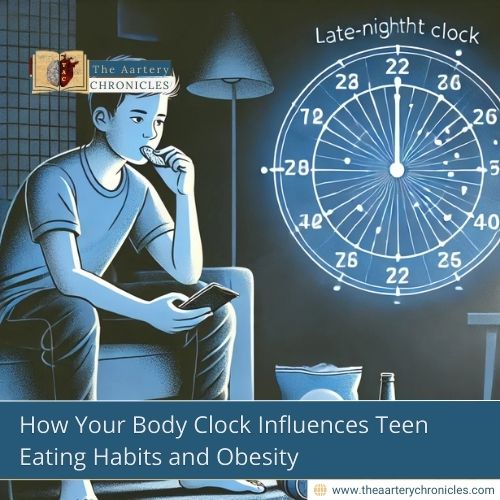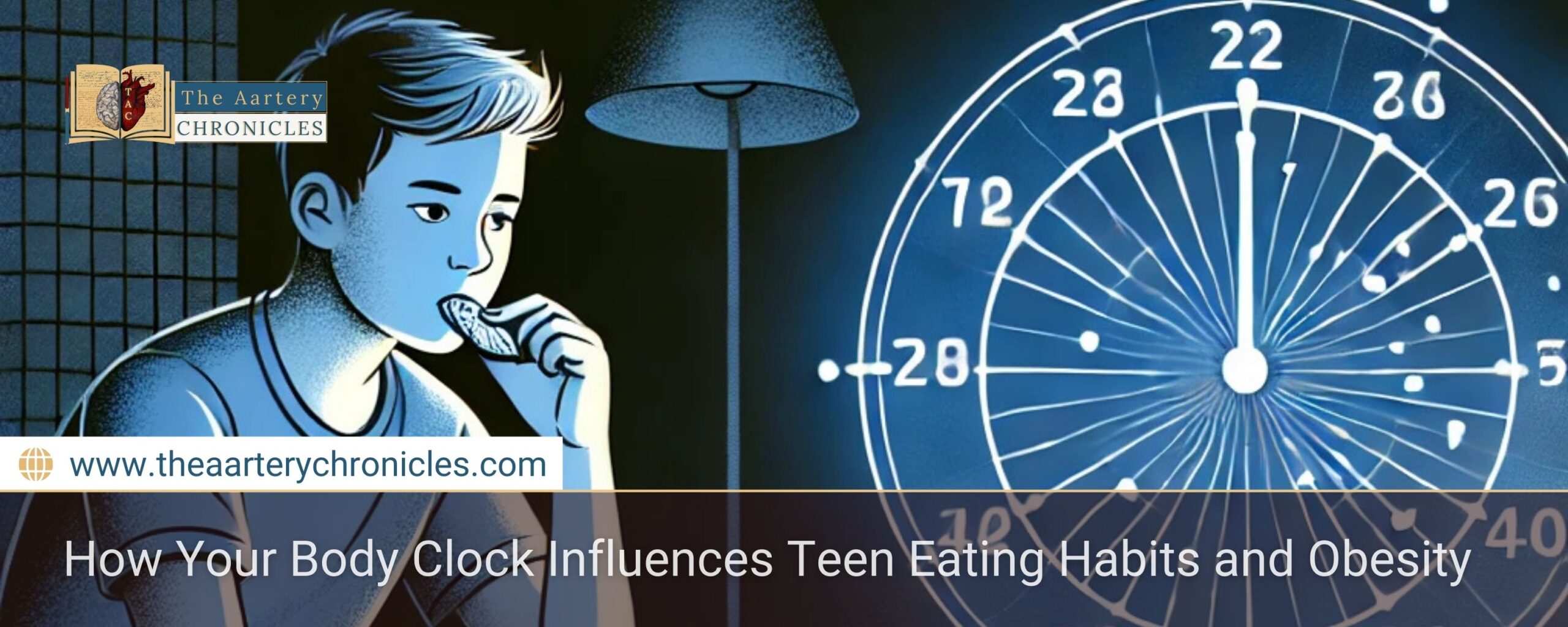

How Your Body Clock Influences Teen Eating Habits and Obesity
Does Your Biological Clock or Body Clock Control When You Eat?
Obesity is influenced by many factors, including sleep and eating patterns. But have you ever wondered if your body’s internal clock, your circadian rhythm plays a role in when you feel hungry?
A new study from Brown University and Mass General Brigham suggests that it does, especially in teenagers. Researchers found that adolescents who were overweight or obese consumed more calories later in the day compared to those with a healthy weight.
What the Study Revealed About Teen Eating Patterns
The study, published in the Proceedings of the National Academy of Sciences, highlights a clear link between circadian rhythms, weight, and adolescent eating habits.
Lead investigator Mary Carskadon, professor of psychiatry at Brown University, emphasised how important this phase of development is:
“The critical nature of adolescent development to set the stage for a lifetime of health highlights the need to understand the roles played by sleep/wake and circadian timing processes for eating behaviour.”
How the Study Was Conducted
Researchers carefully isolated circadian influences by keeping 51 adolescent participants (ages 12–18) in a controlled environment for 11 days and 10 nights. Their sleep and wake cycles were adjusted to 28-hour intervals, which is longer than a regular day to remove environmental cues like clocks or natural light.
- Participants were given six meal opportunities at fixed times with unrestricted food intake.
- Researchers measured the calories consumed and observed when the participants ate the most.
Key Findings: Body Clocks Drive Late-Day Eating
- Across all groups, food intake peaked in the late afternoon and early evening and was lowest in the morning.
- Overweight and obese adolescents consumed significantly more calories in the evening than those with healthy weight.
- No differences in total sleep time were found between the groups, reinforcing the role of circadian rhythms in food intake rather than sleep duration.
Study author Frank Scheer, director of the Medical Chronobiology Program at Brigham and Women’s Hospital, stated:
“This study is the first to demonstrate that food intake itself is regulated by our internal body clock.”
Can Circadian Rhythms Affect Weight Gain?
Future studies aim to explore whether disrupting the circadian system leads to weight gain or if weight changes alter circadian-driven eating patterns.
Mary Carskadon suggested potential interventions:
“For example, the influence of circadian timing could be adjusted by avoiding light late in the day and increasing bright light exposure in the morning, especially while exercising.”
By aligning meal times with our body’s natural rhythms, researchers hope to develop timed dietary interventions that improve long-term health outcomes.
The Takeaway: Timing Matters in Eating Habits
This study reinforces that what we eat matters just as much as what we eat. Teens, in particular, may benefit from mindful eating habits that align with their body’s biological clock.
Key tips for better eating habits:
- Avoid late-night snacking
- Get exposure to bright light in the morning
- Eat balanced meals at regular intervals
Understanding how circadian rhythms impact eating behaviour can help parents, healthcare providers, and teens themselves make healthier choices for a lifetime.
Source: Inputs from various media Sources

Dane
I am an MBBS graduate and a dedicated medical writer with a strong passion for deep research and psychology. I enjoy breaking down complex medical topics into engaging, easy-to-understand content, aiming to educate and inspire readers by exploring the fascinating connection between health, science, and the human mind.








